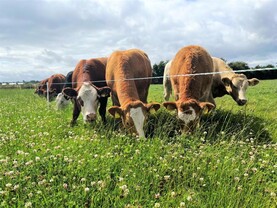Supermarkets tend to only pass on price rises to farmers if there is a risk of supply shortages, a committee of MPs has been told.
Representatives from various farming sectors briefed MPs in Westminster on Tuesday, as part of an ongoing inquiry into fairness within the food supply chain.
A common theme emerged early in the evidence session that supermarket chains are far too slow to react when the prices paid to farmers no longer cover production costs.
Lizzie Wilson from the National Pig Association said farmgate prices for pig producers have improved, but the rise was “nowhere near quick enough”.
“Our producers were losing between £50-60 a pig on average for a sustained period for up to two years. When prices did finally respond, it was because we had lost 25% of our sow herd,” she said.
Similarly, Michael Oakes, chair of the NFU’s dairy board, accused retailers of only responding with improved liquid milk prices when supply started to tighten.
“Fuel, fertiliser and feed had massive rises. The returns to farmers didn’t follow input costs. It only rose when production dropped, as farmers were cutting their cloth accordingly,” he said.
Fruit and veg
Supply chains tends to be shorter in the fruit and vegetable sectors and so many growers are well aware of how trading relationships with major supermarket chains work.
Ali Capper from British Apples and Pears Ltd said growers are “price takers” because retailers always have the fall-back option of buying imports instead.
“When it is always cheaper from abroad, it is too easy to put us up against European or South African imports,” she said.
Capper said imported fruit is cheaper than locally grown product because costs associated with land, labour and energy tend to be much lower in other countries.
“A business last week went into an organised wind down. It was 300 hectares of British top fruit, back by PLC investment and it can’t make it work because it is not getting the price it needs from retailers,” she said.






 This is a subscriber-only article
This is a subscriber-only article











SHARING OPTIONS: